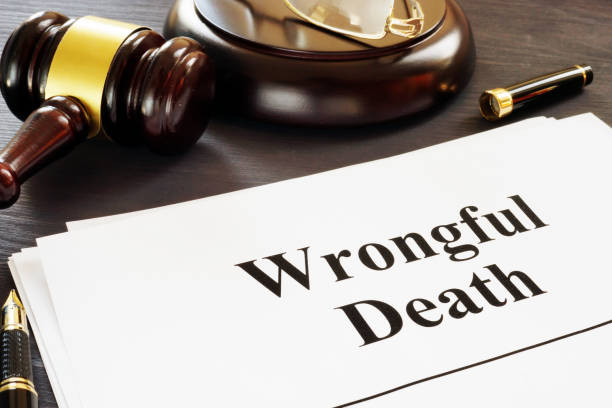
Experiencing the loss of a loved one due to another’s negligence is not only emotionally devastating but also often brings financial strain. In such times, a wrongful death lawsuit can be a pathway to securing justice and financial support. This article aims to guide you through maximizing your settlement in a wrongful death lawsuit, focusing on the steps and strategies that can lead to a more substantial compensation for your loss.
The journey toward a rightful settlement demands careful navigation of the legal landscape, a clear understanding of the value of your claim, and the right legal representation.
Understanding the Legal Framework
In Cleveland wrongful death claims, it’s essential to grasp Ohio’s legal caps on damages. The state sets a ceiling on non-economic damages at $250,000 or three times the economic damages, whichever figure is higher, with a maximum limit of $350,000 per individual and $500,000 for cases with multiple claimants. This cap doesn’t apply to economic damages, or quantifiable financial losses. Knowing these parameters helps set realistic expectations and form a basis for your claim, emphasizing the importance of a detailed assessment of all damages incurred.
Gathering Comprehensive Evidence
The success of a wrongful death lawsuit heavily relies on the solidity of evidence presented. Gathering a wide range of evidence, from police reports and medical documentation to eyewitness accounts and expert evaluations, lays the groundwork for a compelling case. This evidence not only substantiates the circumstances surrounding the wrongful death but also reinforces the legitimacy of your claim for damages, making it harder for opposing parties to refute your demands.
Calculating Economic and Non-Economic Damages
Accurately quantifying economic and non-economic damages is critical in ensuring a fair settlement. Economic damages include tangible losses such as funeral expenses and lost future earnings, while non-economic damages encompass intangible losses like emotional distress and loss of companionship. A meticulous calculation of these damages, reflecting the full impact of your loss, is vital for articulating a comprehensive compensation demand.
Hiring an Experienced Attorney
The expertise of an attorney specializing in wrongful death cases can be the difference between an inadequate settlement and one fully compensating for your loss. An attorney with a track record in similar cases brings a deep understanding of the law and experience in negotiating with insurance companies and opposing counsel. Their guidance is crucial in navigating the complexities of your lawsuit and advocating for your best interests.
Negotiating Effectively
Negotiation is an art, especially in legal disputes. A skilled attorney will use the evidence and calculations of damages as leverage in negotiations, aiming for the highest possible settlement. While negotiations can be challenging, a strategic approach, grounded in a solid understanding of the case’s value, enhances the likelihood of a favorable outcome. This step often requires patience and the readiness to counter lowball offers with reasoned responses.
Utilizing Expert Witnesses
Expert witnesses bring authority and credibility to your claim, offering specialized knowledge that can clarify the extent of damages and the causality of the wrongful death. Their testimonies can be pivotal in challenging the opposition’s arguments and justifying your demands for economic and non-economic damages. Selecting the right experts is crucial, as their input can significantly influence the settlement negotiations.
Preparing for Trial
Although settling out of court is common, preparing as if your case will go to trial puts you in a stronger position. This readiness demonstrates your commitment to obtaining justice to the opposing party, potentially leading to more serious settlement discussions. Trial preparation involves thorough evidence gathering, expert testimony, and a clear presentation of the damages suffered, underlining the seriousness of your claim.
Understanding the Impact of Comparative Negligence
Ohio’s comparative negligence rule could influence your settlement, as it reduces the compensation by the percentage of fault attributed to the deceased. Understanding this legal principle is crucial for realistically assessing the potential settlement amount. This knowledge allows for strategic planning in presenting your case, aiming to minimize your loved one’s perceived fault and maximize the settlement offer.
Securing a fair settlement in a wrongful death lawsuit is a process filled with legal complexities and emotional challenges. By following these steps and leveraging professional legal expertise, you can significantly enhance your chances of receiving a settlement that reflects the true value of your loss. Remember, while no financial compensation can replace your loved one, achieving a just settlement can provide crucial support and a sense of closure as you navigate this difficult period.





